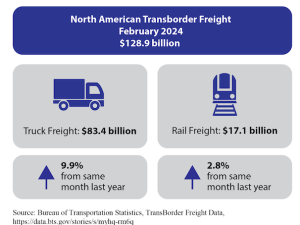"Things are going to have to change, and change big time," John Rockefeller of the Commerce Committee said in criticism of an industry he called disingenuous in its dealings with Congress.
New restrictions could crimp rail companies' profits while bringing relief to large shippers such as commodity producers.
Rockefeller said at a hearing that freight railroads are some of the healthiest companies in the economy but claim otherwise when asked by lawmakers to compromise on pricing reform. He said the industry should no longer benefit from a law enacted 30 years ago to help restore their viability.
"They enjoy substantial market power yet the current railroad regulatory system regards them as incapable of both making needed capital investments and remaining healthy," the West Virginia Democrat said, citing conclusions of a committee staff report on the issue.
"It's past time to update our rail policies to change a system that allows railroads to grossly overcharge captive shippers and to better meet our nation's future transportation needs," he said.
Top rail companies include Union Pacific Corp , Burlington Northern Santa Fe, which is privately held by Berkshire Hathaway Inc , CSX Corp , and Norfolk Southern Corp .
Edward Hamberger, president of the industry's top trade group, the Association of American Railroads, strongly disputed the findings of the committee report and Rockefeller's conclusions.
"New Washington regulations will undermine railroads' ability to sustain the private investments in the nation's rail network," Hamberger said in a statement.
With legislative efforts in doubt as Congress winds down its session and pro-business Republicans eye majorities in one or both houses, Rockefeller and another key Democrat, antitrust subcommittee chairman Herb Kohl, said changes may have to come through regulation.
Greatest Threat to Railroad Profitability
Under federal law, railroads have a limited antitrust exemption and are permitted to negotiate rates with their customers, as opposed to having rate increases fixed by regulators.
Certain shippers, those with no alternatives to rail transport, complain they long have been gouged by an industry that can afford to charge more competitive rates for moving goods.
Rail transports roughly 40 percent of domestic freight and in July posted results that exceeded Wall Street expectations. Affected shippers include agricultural, chemical and steel companies and utilities. Coal companies, a crucial component of West Virginia's economy, are also impacted.
Daniel Elliott, the chairman of the independent Surface Transportation Board (STB), which regulates freight rail economics, said at the hearing he would reexamine rules covering freight rail competition in light of consolidation.
He also said the board was "open for business" to hear shipper pricing complaints.
Transportation Department Deputy Secretary John Pocari said that freight companies will need to be profitable to continue to attract private investment. But he noted that policy needs to be sensitive to shippers.
"Finding the correct balance will be difficult," Pocari told the Senate panel.
Morningstar analyst Keith Schoonmaker is skeptical government intervention will go through. Still, he said it poses the "greatest threat to railroad profitability that exists" and is more pronounced with a Democratic majority.
Anthony Hatch, independent transportation consultant with ABH Consulting, said railroads are increasing dividends and buying back shares -- a centerpiece of Rockefeller's criticism -- but also are returning about three quarters of their free cash to their business.
"The capital intensity of this business is off the charts," Hatch said, adding that regulatory changes probably would not hurt operations in the next few years.
But he sai







